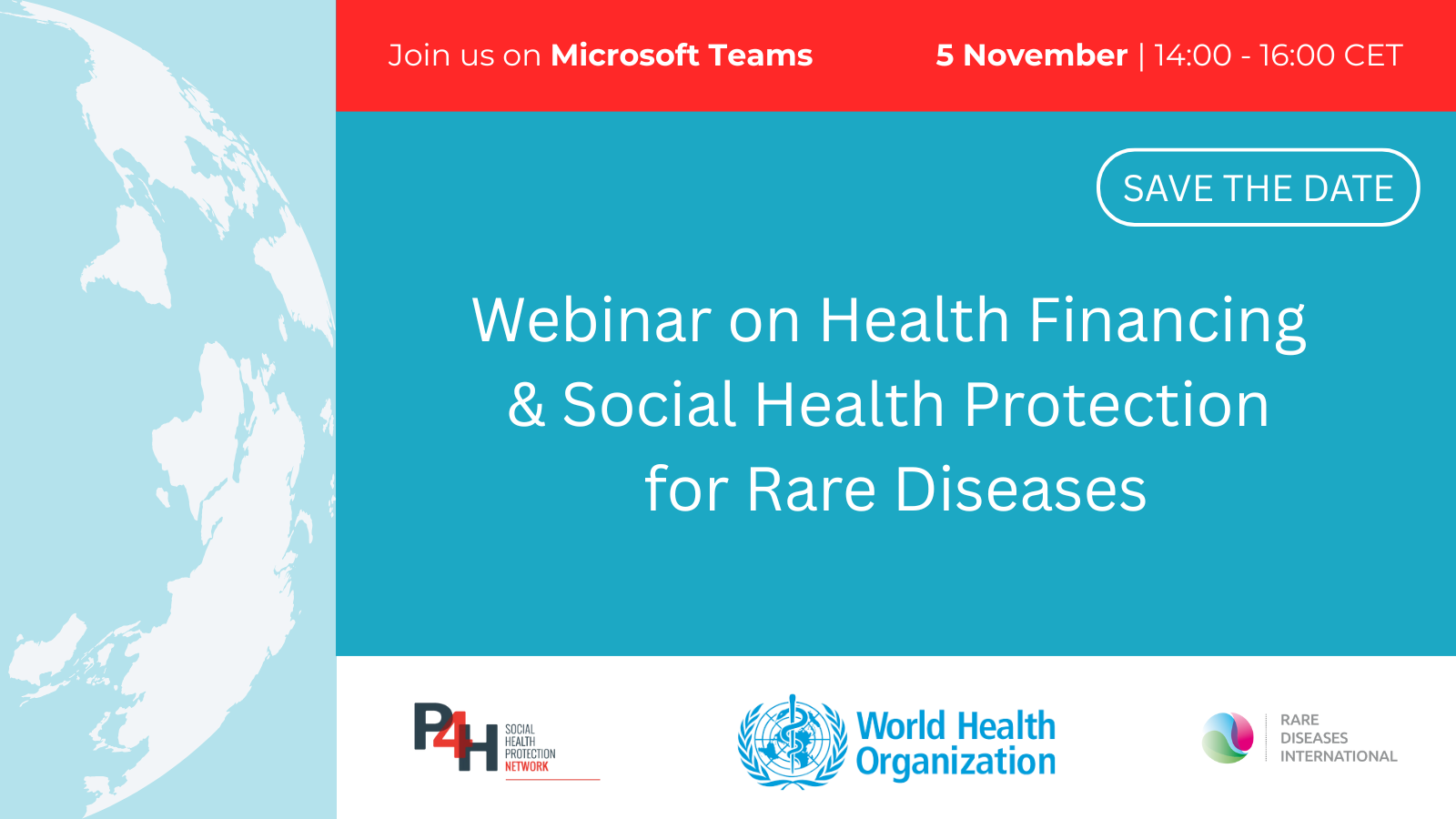France’s 7000 rare diseases affect more than 3 million people. France is a pioneer in Europe in implementing a national plan for rare diseases. They are reimbursed up to 100% by the French Assurance Maladie.
What is a rare disease?
According to the French Ministry of Labor, Health, Solidarity and Families, a disease is considered rare when it affects one person in 2000. Rare diseases with no effective treatment are known as “orphan diseases”. The list of rare diseases is available on orpha.net.
Rare diseases in France in figures
In France, rare diseases represent “a major public health challenge, as the 7,000 rare diseases identified to date affect more than 3 million people, or 4.5% of the population. Half of them affect children under the age of 5, and are responsible for 10% of deaths between one and five years of age.[1]
Rare diseases are treated with so-called ” orphan drugs “. These benefit from a regulatory framework at European level. European regulations on orphan drugs, supported by France, encourage the development of this type of treatment, notably through Regulation (EC) No. 141/2000 of the European Parliament and of the Council of December 16, 1999 on orphan medicinal products. The aim of this regulation is to establish a Community procedure for identifying orphan drugs, and to encourage their development and marketing. [2]
Coverage of orphan drugs
The Community Register of Orphan Medicinal Products groups together all the medicinal products designated as orphan drugs. These are subject to a marketing authorization procedure. The holder of the marketing authorization decides whether or not the drug can be marketed in each European country, which implies the procedures through which drugs pass in each designated country, in order to determine the terms of reimbursement and often the price. In France, drugs must be reviewed by the Transparency Commission of the Haute Autorité de Santé, which examines the drug’s added value in comparison with treatments already available, before it can be reimbursed by Social Security or made available to hospitals. The liste des produits admis aux collectivités includes drugs validated by the commission, intended for hospital use only, and for which no price has been set. The Comité Economique du Médicament is responsible for advising on drugs that can be marketed in towns and cities, determining their public price and registering them for reimbursement. [3]
Policy on rare diseases and newborn screening
The Mission des Médicaments Orphelins was created in 1995, at the instigation of Simone Veil, then Minister of Social Affairs, making rare diseases a major public health issue in France. In 2001, the Plateforme maladies rares (Rare Disease Platform) included several major players in the field, such as Alliance maladies rares, Orphanet and EURORDIS. The National Plan for Rare Diseases (PNMR) was launched in 2003 by Jean-François Mattei, Minister of Health, the Family and the Handicapped. Four national plans have followed, leading to the creation and labeling of 23 rare disease health networks: by 2023, 122 coordinating rare disease centers of reference will have been labeled, comprising 603 rare disease centers of reference. The networks are supported by 1,708 centers of expertise in rare diseases, which provide comprehensive care and follow-up as close as possible to the patient. [4]
Neonatal screening is offered to all newborns in France, enabling the presence of 13 diseases to be detected as early as possible. This makes it possible to implement the necessary treatments, in order to avoid the permanent consequences of certain diseases and enable babies to develop in the best possible way. Screening involves a blood test (heel prick), carried out two or three days after birth by a midwife, nursery nurse or nurse, at the maternity hospital or at home. The diseases screened for are rare and often serious, such as hormonal and metabolic disorders, cystic fibrosis and sickle cell anemia. If the baby is affected, medical follow-up is required, with a range of possible treatments.
The evolving national plan for rare diseases
France is a pioneer in Europe in the development and implementation of a national plan for rare diseases (PNMR).[1]
The first PNMR (National Program for Rare Disease Research) 2005-2008 succeeded in involving various players in the field of rare diseases and identifying centers of reference, and in particular in disseminating information to patients, professionals and the general public through the Orphanet portal, a unique platform for gathering and disseminating knowledge on rare diseases to improve detection and treatment. Created by Inserm (Institut national de la santé et de la recherche médicale) in 1997, Orphanet has become a reference information portal on rare diseases at European and international level.
The aim of the second PNMR 2011-2016 was to boost the quality of care, research and European and international cooperation. In particular, it has enabled the renewal of the labels of centers of expertise and reference, and the progressive development of health networks dedicated to rare diseases.
The third PNMR 2018-2022 focused on prevention and rapid diagnosis and innovation.
The fourth and final PNMR, published on February 25, 2025, has as its major objectives to improve the life and care pathway, facilitate and accelerate diagnosis, promote access to treatments and develop databases and biobanks, while strengthening data sharing at European level.
Disability policy
Rare handicaps are specific handicaps resulting from rare diseases. Relay teams have been set up in each inter-region to deal with rare disabilities. These teams mobilize specialized resources such as the national centers for rare disability resources (CNRHR), rare disease health networks and local structures. These resources involve the relevant players, guide patients and their families, disseminate essential information and support professionals to facilitate care adapted to patients’ specific needs.
Financing mechanisms
Rare diseases are reimbursed by the Assurance Maladie at the standard rate, in the same way as other diseases, leaving the patient to pay the remainder of the cost (ticket modérateur). Some rare diseases are covered under the long-term illness (ALD) scheme, with medical care and expenses reimbursed at 100% by the Assurance maladie, particularly for costly diseases whose severity and/or chronicity require prolonged treatment. This coverage can be provided under ALD 30, ALD 31 and ALD 32.
Organizations such as the Maison Départementale des Personnes Handicapées (MDPH ) and the Maison Départementale de l’Aut autonomie, as well as other public bodies (Caisse d’Allocations Familiales, Caisse Primaire d’Assurance Maladie, Caisse d’Assurance Retraite et de la Santé au Travail, Conseil Départemental, etc.) offer information services, assistance and social benefits to people with rare diseases, depending on their situation.
There is a wide range of financial aid available, some of which requires recourse to the MDPH, as well as aid for access to and contribution to social life (housing, mobility, transport, culture, leisure, sports).
Financial assistance requiring recourse to the MDPH includes the disabled adults’ allowance, the disabled child’s education allowance, and disability compensation benefits (PCH) (human assistance under the PCH benefit, technical assistance under the PCH, other assistance under the PCH).
Resources for coordination and social support
Orphanet is developing a nomenclature dedicated to rare diseases (ORPHA code) to improve their visibility and recognition, and is helping to develop information on the subject through a professional French and English-language encyclopedia, a database on these diseases and their medications, specialized resources, newsletters, etc.
There is also a national service, Maladies rares info services, for listening to and informing people with rare diseases and their families, which can be contacted by telephone, e-mail or via a dedicated forum, from France and abroad, as well as other support systems. Other services include Surdi Info Service (the national deafness information center), the perinatal and parental guidance service for people with disabilities, and the local information and coordination center.
Patient associations also provide comprehensive support for patients and their families:
- Alliance maladies rares, created in 2000, bringing together more than 240 rare disease associations, lobbying public authorities and the France Assos santé health collective.
- EURORDIS, a European alliance of over 1,000 associations of people living with rare diseases in 74 countries, managed by people living with rare diseases.
More information on rare diseases is available on the French government website.
 Salma Khalfi is a project manager in the Insured Persons Department of the Caisse Nationale de l’Assurance Maladie (French National Health Insurance Fund), specializing in long-term illnesses. She also worked as a project manager for international healthcare development aid at AP-HP International, a subsidiary of AP-HP, where she contributed to various public health issues, notably in North Africa and the Middle East. She holds a Master’s degree in International Public Management from Sciences Po Paris and a Bachelor’s degree in Management from ESCP Europe.
Salma Khalfi is a project manager in the Insured Persons Department of the Caisse Nationale de l’Assurance Maladie (French National Health Insurance Fund), specializing in long-term illnesses. She also worked as a project manager for international healthcare development aid at AP-HP International, a subsidiary of AP-HP, where she contributed to various public health issues, notably in North Africa and the Middle East. She holds a Master’s degree in International Public Management from Sciences Po Paris and a Bachelor’s degree in Management from ESCP Europe.
DISCLAIMER OF LIABILITY
This blog is a compilation of relevant information on the subject. All information has been retrieved from the documents referenced in each section. This blog was created with the contribution of Dr Daniele Rousseau, medical advisor to the office of the National Medical Advisor to the French National Health Insurance Fund.
[1] Rare diseases, Sante.gouv.fr
[2] For further information: Orphan drugs, sante.gouv.fr
[3] For more information on orphan drugs in Europe: Orphan drugs in Europe, Orpha.net
[4] Rare diseases: challenges and prospects for research in France, Sante.gouv.fr



